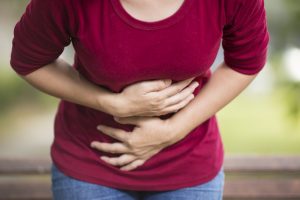Everything you need to know
We have all experienced it and know how unpleasant it really is – but is there more to diarrhoea we should know? Here is a quick go-to guide so you know how to treat diarrhoea and how to prevent the dreaded illness.
What is diarrhoea?
Diarrhoea is commonly known as a condition where loose, watery faeces are passed three or more times a day. It usually occurs when fluid within the body is unable to be absorbed, or extra fluid is leaked into the bowel.
What are the symptoms of diarrhoea?
Most acute cases of diarrhoea will pass in a few days and you will typically notice an urgency in needing to use the toilet, along with frequent passing of loose, watery faeces.
Other common symptoms of diarrhoea include:
- Abdominal cramps and/or pains
- Nausea and/or vomiting
- High temperature
- Bloating
- Feeling of weakness.
Some cases of diarrhoea can be serious, and you should contact your doctor immediately if you are experiencing any of the below symptoms:
- Blood or pus in faeces
- Frequent vomiting
- Painful passing of faeces
- Struggling to drink fluids
- Fever
- Reduced urination.
For babies, young children and the elderly, even acute cases of diarrhoea can be life threatening as their bodies are more vulnerable to dehydration. If you know someone who has diarrhoea and fits into these categories, seek medical attention immediately.
It can also be important to be able to recognise when someone may be dehydrated. Clear signs of dehydration include:
- Weight loss
- Dry mouth (or tongue)
- Increase in thirst
- Reduced, or absence of urination.
What causes diarrhoea?
There are many different factors that can be causes of acute cases of diarrhoea. These include:
- Diet change
- Side effects of medicines (including antibiotics)
- Food poisoning
- Excessive consumption of alcohol
- Food intolerance (for example, to lactose)
- Anxiety or stress
- Tropical diseases (for example, cholera and typhoid)
- Viruses (such as adenovirus, rotavirus and calici virus)
- Parasites (such as Staphylococcus aureus, Salmonella, Shigella and E. coli)
- Bacteria (such as tapeworm and Giardia lamblia).
As well as this, there are several medical conditions that can also cause chronic diarrhoea (serious cases of diarrhoea lasting at least four weeks) such as:
- Coeliac disease
- Irritable Bowel Disease
- Chronic constipation
- Cancer (typically bowel cancer)
- Inflammatory bowel disease
- Irritable bowel syndrome
- Hormone disorders (such as diabetes).
What treatments are available for diarrhoea?
As mentioned, you should always seek medical attention if you are experiencing serious symptoms. However, depending on the severity, there are available treatments for acute diarrhoea. These include:
- Oral rehydration fluids – these are available in sachets, pre-mixed solutions or effervescent tablets and work by restoring electrolytes in the body.
- Anti-diarrhoeal medicines – these should only be taken if advised by your doctor as there are many factors involved. For example, if the diarrhoea is caused by infection, the medicine may keep the infection inside your body even longer. As well as this, some medications can be harmful to pregnant women and children.
- Drinking plenty of fluids to prevent dehydration (make sure to avoid sugary drinks such as soft drinks, juice or sports drinks as this can worsen the diarrhoea).
Can diarrhoea be prevented?
There are many rules you can follow which will be effective in preventing diarrhoea, such as:
- Washing hands – this is probably the most successful prevention as it can stop viruses and bacteria which cause diarrhoea from spreading
- Always make sure your meat is cooked thoroughly
- Clean and disinfect bench tops, stove tops and chopping boards frequently
- Never place food (especially cooked meat) on surfaces where raw meat has been held.
Frequently Asked Questions
- What should I be eating when I have diarrhoea?
If you have diarrhoea, it is highly recommended you begin eating solid foods as soon as you feel you can. You should try avoiding fatty or spicy foods, grains, uncooked vegetables and dairy foods if you feel unsettled. Dry foods containing carbohydrates are a great way to start eating again, particularly with foods such as pasta, rice, bread or mashed potatoes. - What is traveller’s diarrhoea?
Traveller’s diarrhoea typically develops during or after travelling abroad. There are many potential causes, including drinking water or eating food contaminated by germs (such as viruses and bacteria).
Symptoms of traveller’s diarrhoea are similar to those of acute diarrhoea, including fever, vomiting and abdominal pains. Also, like other cases of diarrhoea, the illness and symptoms will pass within a few days. If you have traveller’s diarrhoea, make sure to drink plenty of water to avoid dehydration. A good idea is to visit your doctor for advice on how to avoid it before travelling abroad.
- Is diarrhoea contagious?
While diarrhoea is not always contagious, it can be if it is caused by harmful pathogenic microorganisms. This illness is specifically called acute infection diarrhoea. Viral (for example, rotavirus and calici virus), bacterial (for example, tapeworm) and parasitic (for example, salmonella and shigella) infections are very common causes.





